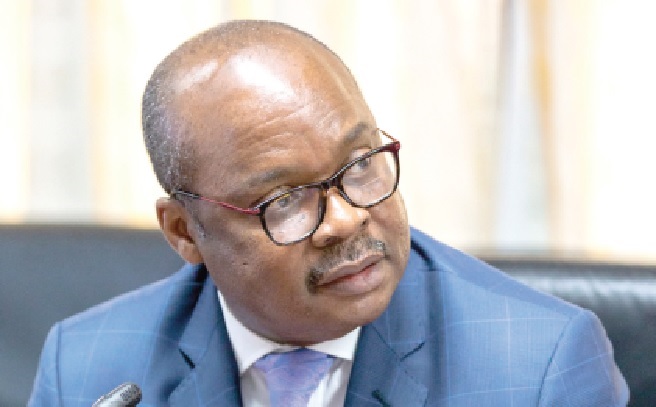
Economic activities in Ghana pick up in first quarter of 2024
The high frequency real sector indicators point to a sustained pick-up in economic activity through the first quarter of 2024.
According to analysis of the domestic economy, the updated real Composite Index of Economic Activity recorded an annual growth of 2.1 per cent in March 2024, compared to a contraction of 6.4 per cent in the corresponding period of 2023.
The pick-up in the index is said to have been driven mainly by increased imports, private sector contributions to the Social Security and National Insurance Trust (SSNIT), and tourist arrivals, the Monetary Policy Committee of the Bank of Ghana said in its May report released in Accra.
For instance, SSNIT launched a major campaign dubbed “Self Employed Enrolment Drive (SEED)” a couple of years ago which has caught up well with players within the private sector.
As of the last quarter of 2023, more than 70,000 self-employed persons had enrolled and counting fast.
Analysts, however, fear that the latest development regarding the purported sale of SSNIT’s stake in some four hotels, including profit-making Labadi Beach Hotel, may slow the progress of the SEED initiative for lack of trust.
They however urged the management of the Tier One pension scheme to be resolute to disabuse the minds of potential contributors to enable the scheme’s financial portfolio to grow according to the objectives for which the campaign was launched.
Business activity
The report also said Ghana’s Purchasing Managers’ Index (PMI) signalled an improvement in business activity as the index rose to 51.3 in April 2024 from 50.9 in March due to improved consumer demand.
The latest confidence surveys conducted in April 2024 point to a softening of sentiments.
“Both business and consumer confidence dipped. On the part of consumers, these sentiments were on account of uncertainties about future economic conditions, while businesses expressed concern that recent exchange rate volatility and the unstable intermittent power supply situation could significantly raise their operational costs moving forward,” the bank said.
Inflation
The disinflation process remained sluggish over the first quarter of the year. Inflation which declined to 23.1 per cent in December 2023, moved up to 25.8 per cent by the end of the first quarter of 2024. This slowdown in the disinflation process was driven in large part by rising food inflation, mainly seasonal food crop items.
In April, however, inflation eased to 25 per cent on account of improvements in the supply of seasonal food crops which seem to have been countered by increasing non-food inflation from the exchange rate pass through effects.
Food inflation declined to 26.8 per cent in April 2024 from the high of 29.6 per cent recorded in March 2024, while non-food inflation increased to 23.5 per cent from 22.6 per cent over the same comparative period.
Like many analysts, the BoG was quick to add that notwithstanding the sluggishness of the disinflation process, underlying inflationary pressures are well contained.
“All the core measures of inflation monitored by the Bank continued to ease. Isolating price increases of energy and utility items from the consumer basket, core inflation moderated to 24.8 per cent in April 2024 from 26.3 per cent in March,” it added.
Uncertainties
What is however not clear is whether the end-year inflation band target of around 13 per cent and 15 per cent will be achieved because of both domestic and global uncertainties.
To some analysts, the potential rise in the cost of utilities, particularly electricity and the uncertainties around crude oil prices on the international market could force the year to end at a rate 5 per cent higher than the projected band.